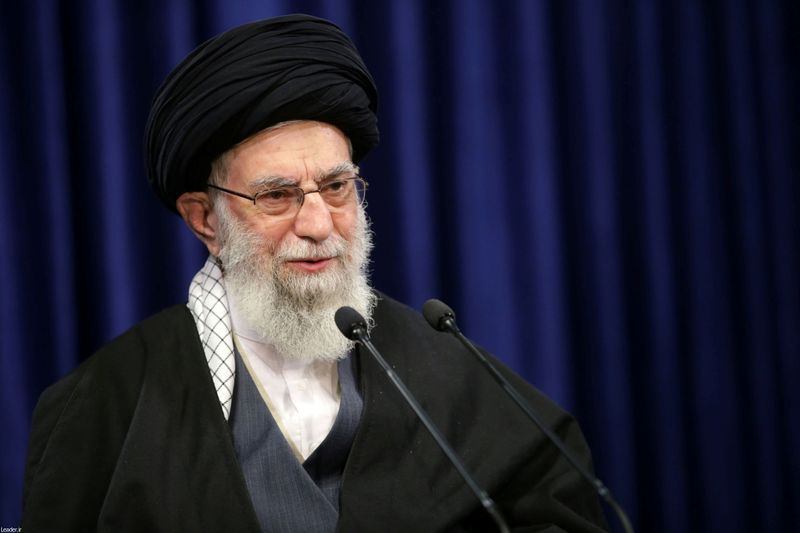By Parisa Hafezi and Arshad Mohammed
DUBAI/WASHINGTON (Reuters) - Iran's Supreme Leader Ayatollah Ali Khamenei said on Sunday that Tehran's "final and irreversible" decision was to return to compliance with the 2015 nuclear deal only if Washington lifts sanctions on the Islamic Republic, Iranian state TV reported.
The comment, as well as U.S. President Joe Biden's separate statement that the United States would not lift sanctions simply to get Iran back to the negotiating table, appeared to be posturing by both sides as they weigh whether and how to revive the pact.
The deal between Iran and six major powers limited Iran's uranium enrichment activity to make it harder for Tehran to develop nuclear arms - an ambition Iran has long denied having - in return for the easing of U.S. and other sanctions.
But former U.S. President Donald Trump abandoned the deal in 2018, denouncing it as one-sided in Iran's favour, and reimposed sanctions that have crippled Iran's economy.
"Iran has fulfilled all its obligations under the deal, not the United States and the three European countries ... If they want Iran to return to its commitments, the United States must in practice ... lift all sanctions," state TV quoted Khamenei as saying during a meeting with Air Force commanders.
"Then, after verifying whether all sanctions have been lifted correctly, we will return to full compliance ... It is the irreversible and final decision and all Iranian officials have consensus over it."
While Iran has insisted the United States first drop its sanctions before it resumes compliance, Washington has demanded the reverse.
In a segment of a CBS News interview taped on Friday and broadcast on Sunday, Biden said "no" when asked whether Washington would lift sanctions to get Tehran to the negotiating table.
Asked if Iran had to stop enriching uranium first, Biden nodded. It was not clear exactly what he meant, since Iran was allowed to enrich uranium to 3.67% under the deal, known as the Joint Comprehensive Plan of Action (JCPOA).
A senior U.S. official later said Biden meant Iran had to stop enriching beyond the deal's limits, not that it had to stop enriching entirely before the two sides might talk.
"They have to stop enriching beyond the limits of the JCPOA," said the official, who spoke on condition of anonymity. "There is nothing changed in the U.S. position. The United States wants Iran to come back into (compliance with) its JCPOA commitments and if it does, the United States will do the same."
Iran in January said it has resumed 20% uranium enrichment at its underground Fordow nuclear site, well above the deal's limit but far short of the 90% that is weapons-grade.
In response to Trump's withdrawal, Tehran has breached the deal's key limits by building up its stockpile of low-enriched uranium, refining uranium to a higher level of purity and using advanced centrifuges for enrichment.
Biden has said if Tehran returned to strict compliance, Washington would follow suit and use that as a springboard to a broader agreement on other areas of concern for Washington including Iran's missile development and regional activities.
Those activities include support for proxies in conflicts roiling countries such as Iraq, Lebanon, Syria and Yemen.

Iran has said it could quickly reverse its JCPOA violations if U.S. sanctions are removed but has ruled out talks on its missile programme and its influence in the Middle East, where Iran and Saudi Arabia have fought proxy wars for decades.